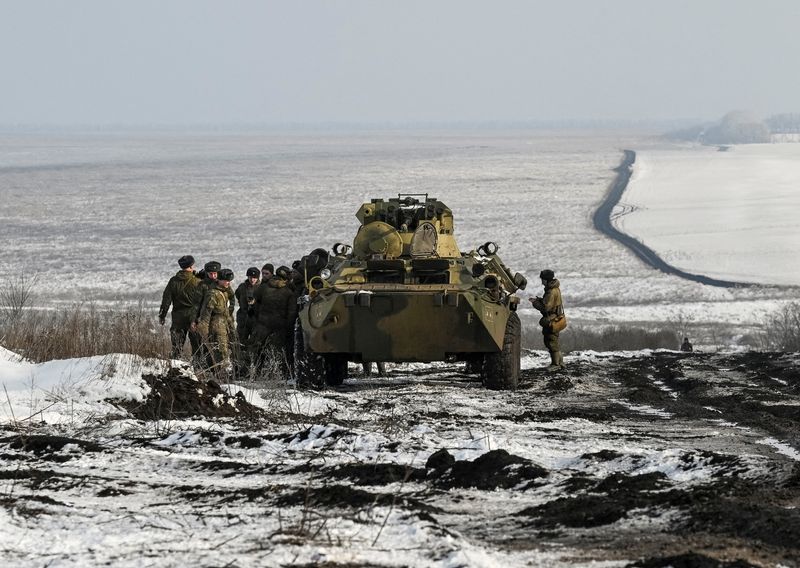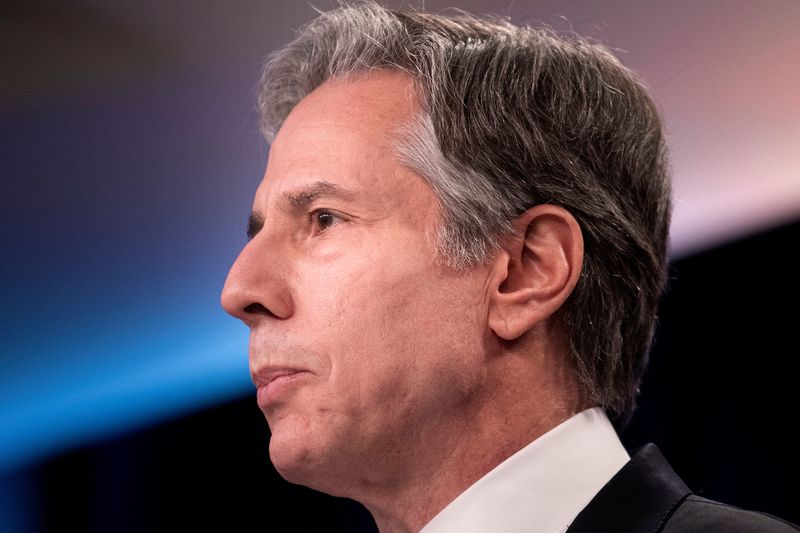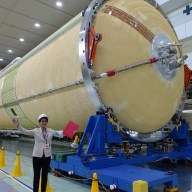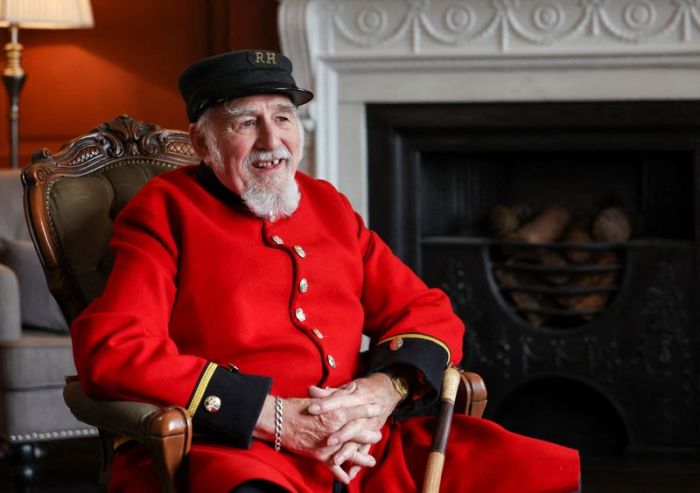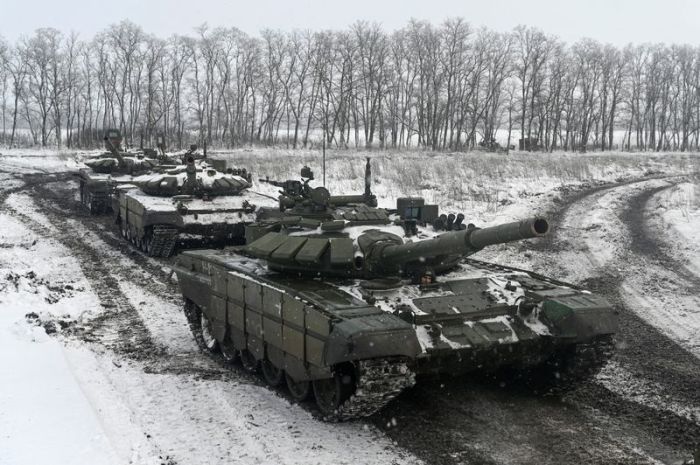BEIJING/WASHINGTON (Reuters) -The United States on Thursday called on China to use its influence with Russia to urge a diplomatic solution to the Ukraine crisis https://www.reuters.com/world/europe/russia-sees-some-room-dialogue-after-us-security-response-2022-01-27, but policy experts doubted Beijing would back Washington in the standoff.
China’s Foreign Minister Wang Yi spoke by phone with U.S. Secretary of State Antony Blinken and Beijing said it wanted all sides to remain calm and “refrain from doing things that agitate tensions and hype up the crisis.”
Blinken stressed that tensions should be reduced and warned of the security and economic risks from any Russian aggression, the State Department said.
U.S. Under Secretary of State for Political Affairs Victoria Nuland said U.S. messages to Beijing had been very clear.
“We are calling on Beijing to use its influence with Moscow to urge diplomacy, because if there is a conflict in the Ukraine it is not going to be good for China either,” Nuland said at a regular State Department news conference. “There will be a significant impact on the global economy. There will be a significant impact in the energy sphere.”
China’s U.N. ambassador Zhang Jun said a “time-honored Olympic Truce” for the Beijing Winter Games that begin on Feb. 4 would start from Jan. 28.
“Let’s take this opportunity to promote peace, solidarity, cooperation, and other common values shared by all humanity, to make our world a better place,” Zhang tweeted.
Russia has been building up its forces on Ukraine’s borders for months and has demanded NATO pull troops and weapons from eastern Europe and bar Ukraine, a former Soviet state, from ever joining the U.S.-led military alliance.
NATO allies reject this but say they are ready to discuss arms control and confidence-building measures.
Daniel Russel, the senior U.S. diplomat for Asia under former President Barack Obama, said that while China could not be happy about the possibility of an invasion of Ukraine on the eve of the Olympics, “Wang Yi chose to defend Russia’s ‘legitimate security concerns’ rather than offer any support to Blinken.”
Bonnie Glaser of the German Marshall Fund of the United States said Beijing could act as a spoiler to any attempts by the United States and its allies to impose costs on Russia.
“It is unlikely that the U.S. can get China on board over Ukraine. Beijing won’t endorse use of force, but it is sympathetic with Russian views of NATO. And this is not just about the Olympics,” Glaser said.
If the United States and the European Union imposed sanctions on Russia, “China is likely to take steps to mitigate their impact,” she said.
NATO EXPANSION
Wang, apparently referring to NATO’s expansion in eastern Europe, told Blinken that one country’s security could not be at the expense of others and regional security could not be guaranteed by strengthening or even expanding military blocs, his ministry said.
The United States has urged Ukraine and Russia to return to a set of pacts to end a separatist war by Russian-speakers in eastern Ukraine. But steps set out in the so-called Minsk II agreement remain unimplemented, with Russia’s insistence that it is not a party to the conflict and therefore not bound by its terms being a major blockage.
Rand Corporation analyst Derek Grossman said China’s version of the call with Blinken said Wang had highlighted Minsk, even though Russia had never abided by it.
“I don’t see much room for U.S.-China cooperation here, unfortunately … The U.S. would have to close the door to future NATO expansion for China to get on board, and Secretary Blinken has already stated that this is a non-starter.”
‘MISTAKES’
Wang said the new Minsk agreement was “a fundamental political document recognized by all parties and should be effectively implemented.” China will support efforts made in line with the “direction and spirit of the agreement,” he said.
China strengthened ties with Russia as tension between Beijing and Washington has mounted over issues from trade to human rights, Taiwan and China’s extensive maritime claims.
Russian President Vladimir Putin is expected to visit China next week for the Winter Olympics.
Russian troops invaded Georgia in August 2008 while Putin was in China taking in the opening ceremonies of Beijing’s Summer Olympics. The crisis took some Western countries by surprise.
Wang underscored the cool state of Beijing’s ties with Washington, saying that the United States “continues to make mistakes in its words and deeds on China, causing new shocks to the relationship”.
“The top priority at the moment is that the U.S. should stop interfering with the Beijing Winter Olympics, stop playing with fire on the Taiwan issue, and stop creating various anti-China cliques,” he said.
The United States, Canada, Australia and Britain have said they will not send any state officials to the Games because of China’s human rights record. China denies rights abuses and had rejected what it calls the politicization of sport.
(Reporting by Ryan Woo and Gabriel Crossley in Beijing, Akriti Sharma in Bengaluru, David Brunnstrom and Michael Martina in Washington and Michelle Nichols in New York; Editing by Robert Birsel, William Maclean and Grant McCool)

